Psychotherapy Blog
-
The Mother Wounds: Healing from a Narcissistic Mother: Signs, Effects and How to Recover
Healing from a narcissistic mother is not about blame. It is about understanding how narcissistic parenting shapes your self-worth, nervous system and adult relationships — and how to begin recovering.
Click Here
Many adults do not search “narcissistic mother” at first. They search:
Why do I feel guilty all the time?
Why do I people-please?
Why do I feel never good enough?
Why do I attract emotionally unavailable partners?
Often, the roots trace back to maternal narcissistic patterns.
What Is a Narcissistic Mother?
A narcissistic mother consistently prioritises her own needs, image or emotional comfort over her child’s emotional development.
Common signs include:
• Emotional invalidation (“You’re too sensitive.”)
• Conditional love based on achievement or compliance
• Enmeshment (treating you as an extension of her)
• Parentification (you became her emotional support)
• Gaslighting (denying your lived reality)
Not every difficult parent is narcissistic. The defining feature is persistent emotional self-centredness that erodes a child’s developing sense of self.
Effects of Growing Up with a Narcissistic Mother
Adult children of narcissistic mothers often experience:
Chronic Self-Doubt<... -
Heal Your Attachment Style to End Your Relationship Struggles

An integrative therapist’s perspective on why love feels hard — and how to change the pattern.
Click Here
If you keep finding yourself in the same relationship struggles — anxious texting, pulling away when things get close, choosing emotionally unavailable partners — you’re not broken.
You’re patterned.
From a therapist’s point of view, most recurring relationship problems link back to attachment style. The good news? Attachment styles are not life sentences. They can be understood, softened, and healed.
Let’s make this practical.
What Is Attachment Style?
Attachment style describes how we bond, connect, and respond to closeness in relationships. It forms early, based on how safe, seen, and soothed we felt growing up.
Over time, this becomes our relational blueprint.
In therapy, I often hear:
“Why do I panic when they don’t text back?”
“Why do I lose interest when someone likes me?”
“Why do I always choose unavailable people?”
“Why do I feel too much… or not enough?”
These are attachment questions.
The Four Main Attachment Styles in Relationships:
Anxious Attachment
You may:
Fear abandonment
Overthink texts and tone
Need reassurance but feel ashamed for needing it
Feel “too much”... -
The Father Wounds

My sisters were responsible for my care and development.
Click Here
When I was younger everything seemed ok, but let’s be honest, I don’t really know how things should be. I want to play and have fun, but there is no one, really for me to play with. Moms too busy, she’s taking care of the house during the day. Making sure clothes are clean and food is cooked, before going to work her night shifts.
Dad is a fleeting glance in the evenings. He returns home from work and doesn’t really talk to anyone. Even I have recognised his evening ritual, Bath, get dressed and out.
Sometimes I’ll see him at the weekends. Sometimes he returns home from work and takes over the TV. Watching the Cricket, through his eyelids. God forbid you should think you can change channels. He ruled with a rod of iron and a thick belt of leather. Love wasn’t shown, but discipline was enforced. “Those who don’t hear must feel”
I just feel lost and alone most of the time. No idea who I am or should be.
Tolerated but not really accepted. I quickly learned that If I offered entertainment people would smile and accept me. So that became my dream and focus, entertain and demonstrate my worth. Danny Kaye, Norman Wisdom, Bob Hope and Jerry Lewis bec... -
Overcoming Low Self-Esteem: My Personal Experience as an Integrative Therapist

Low self-esteem is something I work with every day as an integrative therapist based in Nottingham — and it’s also something I’ve known personally. Not in a loud or obvious way, but in the quieter patterns that often sit underneath a capable exterior: self-doubt, over-responsibility, and a sense of needing to do more to feel enough.
Click Here
That personal experience deeply shapes how I work as a therapist. In my Nottingham therapy practice, I don’t see low self-esteem as a lack of confidence or motivation. I see it as a learned response — something that once helped a person cope, belong, or stay emotionally safe.
What Low Self-Esteem Looked Like for Me
For me, low self-esteem didn’t look like disliking myself. It looked like being far more compassionate towards others than towards myself, overthinking conversations and decisions, feeling guilty for resting, and measuring my worth through productivity and usefulness.
Many clients I support through private therapy in Nottingham and online counselling across Nottinghamshire describe similar experiences. Often they are thoughtful, capable people who appear confident on the outside but feel uncertain or self-critical inside.
Why Understanding Wasn’t Enough
As an integrative... -
Online Therapy UK: How Virtual Counselling Works and Who It’s For

Online therapy in the UK has become a trusted and effective way to access mental health support. Still, many people ask the same question: Does online counselling really work — and is it right for me?
Click Here
As an integrative therapist working online, I regularly support clients across the UK who want flexible, accessible therapy that fits into real life. For many, virtual counselling isn’t just convenient — it’s genuinely transformative.
What Is Online Therapy in the UK?
Online therapy (also known as online counselling UK or virtual therapy) involves sessions with a qualified therapist via secure video or phone. The therapeutic process is the same as in-person counselling, but sessions take place remotely.
UK online therapists follow the same ethical standards, confidentiality rules, and professional guidelines as face-to-face practitioners. Your privacy and emotional safety remain central.
How Does Online Counselling Work?
Online therapy sessions usually last 50 minutes and take place on a secure, GDPR-compliant platform. All you need is a private space and a stable internet connection.
From an integrative therapy perspective, online counselling may include:
Talking therapy
Attachment-based work
Emotional and bo... -
Low Self-Esteem | Build Confidence & Self-Worth

Low self-esteem can be quiet and subtle. It doesn’t always sound like “I don’t like myself.” More often, it shows up as overthinking, people-pleasing, self-doubt, or a constant inner critic telling you you’re not enough. Many people say, “I look confident on the outside, but inside I’m always questioning myself.”
Click Here
From an integrative therapy viewpoint, low self-esteem isn’t a flaw or a weakness. It’s often a learned response to life experiences, relationships, and environments that taught you to shrink, adapt, or stay safe.
What Low Self-Esteem Really Looks Like
Low self-worth often shows up in everyday ways, such as:
Struggling to say no, even when you’re exhausted
Minimising your needs or emotions
Constantly comparing yourself to others
Feeling undeserving of rest, love, or success
Staying in relationships or jobs that don’t feel right
These patterns usually make sense once we explore where they began.
An Integrative Therapy Perspective
Integrative therapy looks at the whole person: your thoughts, emotions, body, relationships, and past experiences. Rather than focusing only on “positive thinking,” therapy explores:
Early messages about who you needed to be to feel accepted
How attac... -
How Therapy Helps Depression
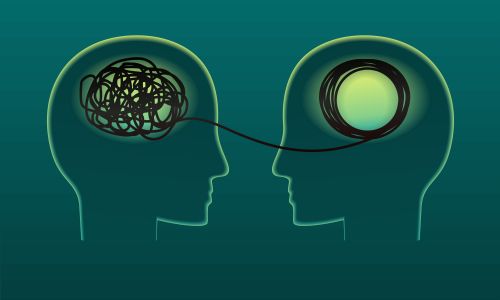
Depression can affect how you think, feel, and function day to day. It may look like persistent sadness, but it can also show up as emotional numbness, low energy, irritability, poor sleep, or a sense of feeling disconnected from yourself and others.
Click Here
Therapy for depression offers more than symptom management. From an integrative therapy perspective, it supports you in understanding why you feel the way you do and helps you move towards lasting emotional wellbeing.
Understanding Depression From a Whole-Person Perspective
Integrative therapy views depression as a response to lived experience, not a personal failure. Rather than focusing on one cause, therapy looks at the whole picture — your emotional history, relationships, stress levels, nervous system, and current life pressures.
Depression may be linked to chronic stress, burnout, unresolved grief, relationship difficulties, or early experiences that shaped how you cope and connect. Therapy helps bring these pieces together so your symptoms start to make sense, rather than feeling confusing or overwhelming.
A Safe Space to Talk and Be Understood
One of the most effective ways therapy helps with depression is by offering a safe, confidential space to speak openly. Many pe... -
Attachment Styles in Relationships: Understanding How We Lov
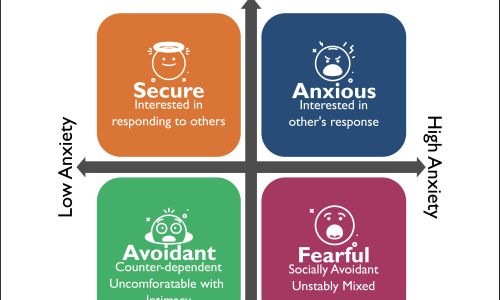
If you’ve ever found yourself thinking “Why do I always react like this in relationships?” or “Why do I keep choosing the same type of partner?” — you’re not alone.
Click Here
From an integrative therapy perspective, one helpful way of making sense of relationship patterns is through attachment styles. Attachment theory isn’t about blaming you or labelling you as “good” or “bad” at relationships. It’s about understanding how your nervous system learned to feel safe (or unsafe) with closeness, love, and connection.
Once you understand your attachment style, relationships often start to make a lot more sense.
What Are Attachment Styles?
Attachment styles develop early in life, usually through our first relationships with caregivers. These early experiences shape how we connect with others as adults — especially in romantic relationships.
There are four main attachment styles commonly talked about in therapy:
Secure attachment
Anxious attachment
Avoidant attachment
Fearful-avoidant (sometimes called disorganised) attachment
Most people don’t fit neatly into one box. You might recognise yourself in parts of more than one, and attachment styles can also change over time.
Secure Attachment: Feeling... -
Why Do I Feel Anxious for No Reason? An Integrative Therapist Explains
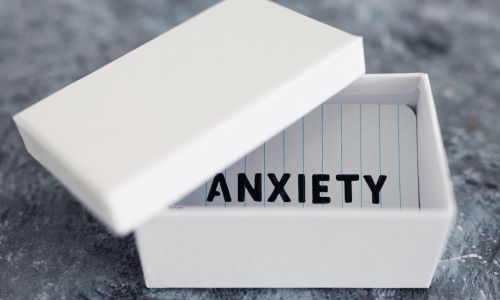
If you’ve ever caught yourself thinking, “Nothing bad is happening, so why do I feel so anxious?” you’re not alone. This is one of the most common questions people bring into therapy. And the short answer is this: anxiety rarely comes from “nowhere”, even when it feels like it does.
Click Here
From an integrative therapy point of view, anxiety is often your mind and body trying to protect you — sometimes a little too well.
Let’s slow this down and make sense of it together.
Why anxiety can show up without an obvious reason
Anxiety doesn’t always arrive with a clear trigger. You might be making a cup of tea, lying in bed, or scrolling on your phone, and suddenly your chest feels tight, your thoughts race, or you just feel on edge.
Here are some common, often overlooked reasons this happens:
Your nervous system is already overloaded<br data-start="1087" data-end="1090">Long-term stress, burnout, or emotional exhaustion can keep your body stuck in high alert mode, even when life feels calm on the surface.
Old experiences still live in the body<br data-start="1271" data-end="1274">Past experiences, especially ones where you felt unsafe, unheard, or overwhelmed, don’t just live in memory. Your body remembers t... -
Am I Depressed or Just Tired?

As an integrative therapist, this is one of the most common questions I hear in my therapy room — and honestly, one I’ve asked myself at different points in my own life.
Click Here
Because modern life is exhausting.
Work pressure, emotional labour, family responsibilities, poor sleep, constant notifications, financial stress — it all adds up. So it makes sense to wonder: am I actually depressed, or am I just really, really tired?
The truth is, the line between the two isn’t always clear.
When Tiredness Starts to Feel Like Something More
Being tired doesn’t just mean needing an early night. Emotional and mental exhaustion can show up in subtle ways, such as:
Feeling flat or numb rather than sad
Losing motivation for things you used to enjoy
Struggling to concentrate or make simple decisions
Feeling irritable, overwhelmed, or emotionally “thin-skinned”
Wanting to withdraw from people, even ones you care about
I often work with clients who say, “I don’t feel depressed exactly… I just don’t feel like myself anymore.” That sentence matters.
So… What’s the Difference Between Depression and Burnout?
From an integrative therapy perspective, we don’t rush to label. Instead, we gently explore what’s h... -
Why Do I Keep Attracting Emotionally Unavailable Partners? (For Women)

If you’re a woman who keeps finding herself in relationships that feel one-sided, confusing, or emotionally distant, you might quietly wonder, “Why does this keep happening to me?”
Click Here
You may be emotionally aware, caring, and ready for connection — yet you keep attracting partners who can’t fully meet you where you are. This experience is incredibly common among women, and it can slowly chip away at your confidence and emotional wellbeing.
As an integrative therapist, I want you to know this: this pattern isn’t a personal failing. It’s often rooted in learned relationship dynamics, not your worth or value.
What Emotional Unavailability Often Looks Like for Women
Emotionally unavailable partners may not be obvious at first. In fact, they often appear confident, charming, or “low drama.” Over time, patterns begin to show, such as:
Avoiding deeper emotional conversations
Being inconsistent with communication
Pulling away when closeness increases
Keeping things vague about commitment
Making you feel like you’re “asking for too much”
For example, you might find yourself dating someone who enjoys your emotional support but disappears when you express your own needs. Or someone who... -
New Year. New Mindset: Mental Health Goals for the Year Ahead

From an integrative therapist’s perspective
Click Here
The new year often arrives with a lot of noise. New goals, new routines, new pressure to “get it right.” Many people I work with come into January already feeling behind, exhausted, or quietly anxious about what they should be doing differently.
From an integrative therapy viewpoint, mental health goals aren’t about forcing change or fixing yourself. They’re about understanding what you need, supporting your emotional health, and creating small, realistic shifts that improve your overall wellbeing. A new mindset doesn’t mean becoming a new person. It means meeting yourself where you are, with honesty and compassion.
Below are gentle, practical mental health goals you can carry into the year ahead, without adding more stress to your life.
Focus on progress, not perfection
One of the biggest reasons New Year goals fall apart is perfectionism. When we expect instant change, we often give up altogether.
For example, you may plan to prioritise self-care, miss a few days, and decide you’ve “failed.”
Try this instead:
Set goals that are flexible and forgiving
Aim for progress, not perfection
Notice small wins, such as choosing rest or saying no once... -
Why Am I Always Exhausted Emotionally?

An integrative therapist’s personal experience
Click Here
If you often find yourself asking, “Why am I always emotionally exhausted?” you are not weak, broken, or failing. You are human — and you are not alone.
As an integrative therapist, and through my own lived experience, emotional exhaustion is something I understand deeply. I didn’t first recognise it in theory or training. I recognised it in my own body, quietly signalling that something wasn’t sustainable.
For me, emotional exhaustion didn’t look dramatic. It looked like functioning on the outside while feeling permanently drained inside. It showed up as constant overthinking, emotional fatigue, irritability, low motivation, and a kind of tiredness that sleep never fully fixed.
If this resonates, it’s worth exploring what emotional exhaustion really is — and how it can be managed.
What is emotional exhaustion?
Emotional exhaustion is a state of mental and emotional fatigue caused by prolonged stress. It is commonly linked to burnout, anxiety, depression, trauma, and chronic overwhelm.
Common signs of emotional exhaustion include:
Feeling tired all the time, even after rest
Emotional numbness or frequent tearfulness
Brain fog and difficulty co... -
Work Stress Affecting Your Mental Health?
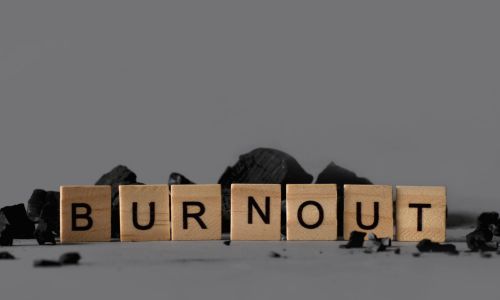
Work Stress Affecting Your Mental Health?
Click Here
If you’re feeling constantly drained, irritable, or like work is taking up far too much space in your head, you’re not alone. As an integrative therapist, and from my own past experience, I know how quietly work stress can creep in and start affecting your mental health before you even realise what’s happening.
For me, it didn’t look dramatic at first. I was still getting up, still going to work, still “functioning”. But inside, I was tense all the time. My sleep was broken, my patience was shorter, and I carried a low-level anxiety that never really switched off. Looking back, the signs were there long before I acknowledged that work stress was impacting my wellbeing.
How work stress shows up in everyday life
Work-related stress doesn’t always look like burnout straight away. Often, it’s more subtle.
You might notice:
Constantly thinking about work, even in the evenings or on days off
Small tasks feeling overwhelming or exhausting
Increased irritability or withdrawing from others
Changes in sleep, appetite, or motivation
Anxiety before workdays, meetings, or checking emails
I remember lying in bed replaying conversations from the day, wor... -
Managing Depression and Anxiety as a Black Woman: A Black Integrative Therapist’s Personal Perspective

I write this not only as an integrative therapist, but as a Black woman who has lived with depression and anxiety herself.
Click Here
For a long time, I didn’t have those words. What I knew was that I was tired in a way sleep didn’t fix. My mind raced at night, replaying conversations, responsibilities, and the quiet pressure to keep going. I was functioning — working, caring, showing up — but inside I often felt overwhelmed, disconnected, and emotionally heavy.
If any of this sounds familiar, I want you to know this first: you are not alone, and you are not imagining it.
How depression and anxiety showed up for me
My depression didn’t look like staying in bed all day. It looked like being high functioning but emotionally drained. Smiling in public and crashing in private. Feeling guilty for needing rest. Carrying everyone else’s needs before my own.
My anxiety lived in my body. Tight shoulders. Shallow breathing. A nervous system that never fully settled. At night, when everything went quiet, my thoughts got louder.
Like many Black women, I learned early that strength meant endurance. You cope. You pray. You push through. You don’t complain.
But pushing through came at a cost.
Why this is so common for Black women
D... -
Why Substance Misuse and Mental Illness Are So Closely Linked
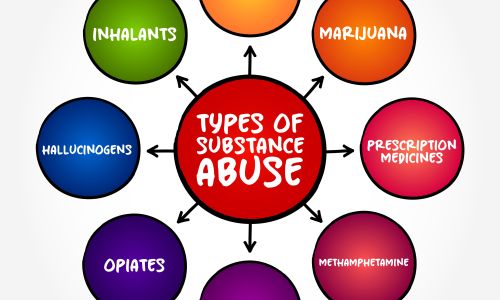
1. Substances often become a coping tool
Click Here
When someone feels overwhelmed by anxiety, depression, trauma, stress, or low self-esteem, reaching for something that offers quick relief can feel incredibly tempting. Alcohol, drugs, or misused prescription medication can temporarily numb emotions — but the relief is short-lived.
Before long, the person finds they’re using more often, just to feel “normal”.
This is how many people slip into addictive behaviours without ever intending to.
2. Substances can trigger or worsen mental illness
It’s not always that mental illness comes first. Sometimes the substance use itself leads to symptoms like paranoia, panic attacks, mood swings, or feelings of hopelessness.
For example:
Regular cannabis misuse can worsen anxiety in some people.
Cocaine or stimulants can seriously disrupt sleep and mood.
Alcohol, being a depressant, often deepens existing low mood.
This is why the term dual diagnosis — meaning both addiction and mental illness happening at the same time — is becoming more widely recognised in mental health services.
3. Trauma sits quietly underneath — a lot
A huge number of people who struggle with substance misuse have a history of trauma: childhood emotio...
